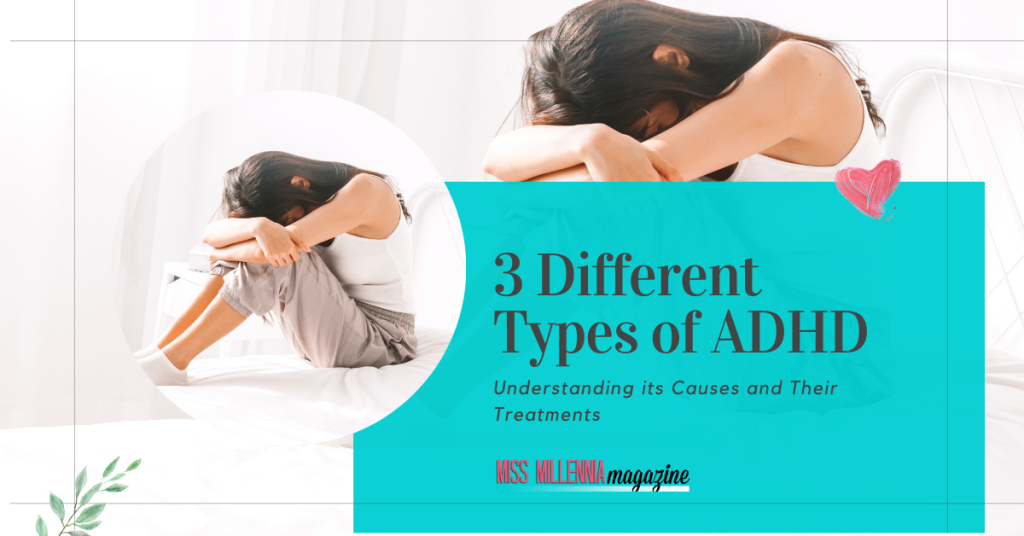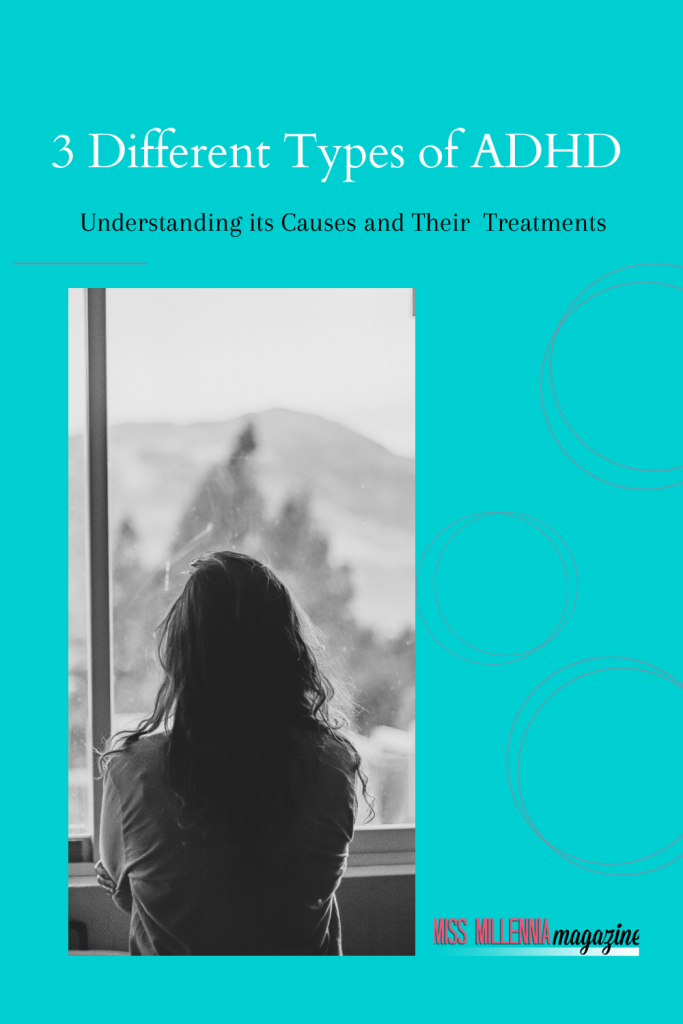3 Different Types of ADHD Understanding its Causes and Their Treatments

Do you or someone you know have ADHD? Attention Deficit Hyperactivity Disorder (ADHD) is a neurodevelopmental disorder characterized by significant difficulties regulating attention and hyperactivity. It is often marked with symptoms such as distractibility, inattentiveness, lack of focus, and restlessness. However, you can take ADHD medications from buydiazepamuk to treat this condition. It can impact individuals’ lives.
Therefore, it’s essential to understand the different types of ADHD and their associated treatments so that sufferers can better understand how to manage their symptoms and live more fulfilling lives. In this blog post, we’ll take an informed look at the various facets of ADHD: what exactly is it? What are its causes; what are the different types; and lastly, most importantly – how is it treated?
What is ADHD, and What are its Types?
ADHD, or Attention Deficit Hyperactivity Disorder, is a neurodevelopmental disorder affecting millions worldwide. It is typically diagnosed in childhood but can persist into adulthood. While the exact causes of ADHD are not fully understood, research suggests that genetics, environmental factors, and brain chemistry all play a role. There are three main types of ADHD:
- Predominantly inattentive
- Predominantly hyperactive-impulsive
- Combined
Each type presents unique symptoms and challenges, but they all share the common feature of difficulty with attention, focus, and self-control. Despite the challenges of ADHD, individuals with this condition can lead happy, fulfilling lives with the proper support and treatment.
Causes and Symptoms of ADHD
As mentioned earlier, ADHD is thought to be caused by a combination of genetic, environmental, and neurological factors. Mainly common symptoms include:
- Inattention
- Hyperactivity
- Impulsivity
Children with ADHD often struggle with concentration and completing tasks and may have difficulty sitting still or following instructions. Adults with ADHD may experience difficulty with time management and organization, which can lead to problems in the workplace. While there is no cure for ADHD, it can be effectively managed with medication, therapy, and lifestyle changes. For instance, adults with ADHD can effectively manage their challenges by breaking down large projects or tasks into smaller, manageable steps. Staying on task becomes more achievable by adhering to a well-structured schedule and using a timer to enforce it if necessary.
On the other hand, for children with ADHD, specific therapies tailored to their needs can be highly beneficial. Engaging activities play a crucial role in these therapies, offering a dynamic approach to address their unique challenges. Activities for ADHD kids are carefully designed to meet their specific needs and provide essential support in their development.Understanding the causes and symptoms of ADHD is critical to getting proper treatment and living a successful life with this condition.
Medication, Therapy, and Holistic Approaches
Attention Deficit Hyperactivity Disorder (ADHD) can make it difficult for people to concentrate, be organized, and stay on task. Luckily, several different approaches can help manage the symptoms of ADHD. The most common treatments include medication, therapy, and holistic practices.
- Medication is often used and can effectively reduce symptoms such as impulsivity and hyperactivity.
- Therapy, such as cognitive-behavioral therapy, can help people with ADHD learn coping strategies and improve their organization and time management skills.
- Holistic approaches such as incorporating meditation and yoga into one’s daily routine can help manage symptoms more naturally.
It’s important to note that each person’s experience with ADHD is unique, and finding the right treatment plan may take time and patience.
Tips for Supporting a Loved One with ADHD
ADHD is not something people can “snap out of.” If someone you love is affected by ADHD, knowing how to support them can be challenging. One way is to be patient, as they might struggle with routines or completing tasks. You can help by breaking down larger tasks into smaller ones and setting achievable goals.

It’s also important to communicate openly, listen actively and show empathy. Finally, remember that ADHD is not just a phase or a temporary issue but a lifelong condition that requires support and understanding. Working together will help them cope with ADHD and live their best lives.
Strategies to Reduce Stress in an ADHD Household
ADHD households can be stressful, but there are ways to manage that stress effectively. Some research suggests that regular physical exercise can help reduce symptoms of ADHD and anxiety in individuals. Exercise can increase dopamine and norepinephrine levels in the brain, improving focus and attention. Parents can also create a structured routine for their children to follow to reduce stress and anxiety.

For example, establishing a consistent bedtime, designating times for meals and homework, and scheduling family activities can help children with ADHD feel more organized and secure. Another strategy is to practice mindfulness meditation, which can improve emotional regulation and reduce anxiety. These are just a few strategies to help reduce stress in ADHD households, but it’s important to remember that each family situation is unique and may require a tailored approach.
Challenges Faced and How to Overcome Them
Living with ADHD can be a daily battle for many individuals. From tasks as simple as maintaining focus and concentration to more complex issues such as regulating emotions and following through on projects, those with ADHD face unique challenges that can make everyday life more difficult. However, overcoming these obstacles with the right strategies and support is possible.
Some tips for managing ADHD symptoms include developing a consistent routine, breaking tasks into smaller, more manageable pieces, and seeking professional help such as therapy or medication. While living with ADHD may present challenges, it doesn’t have to limit one’s potential for success and happiness.







